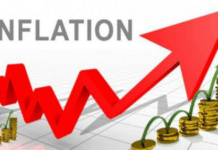Bangladesh ranks low in social mobility index
 World Economic Forum. Photo: Wikimedia Commons
World Economic Forum. Photo: Wikimedia Commons
Feb 09, 2020
The social mobility index indicates the access people of a country have to health, education, employment and other basic facilities.
Economist Zahid Hossain, speaking to Prothom Alo, said that all people in this country do not have equal the ability to access education, health and other factors of social mobility. The main reason is constraints from birth. This unequal access to such facilities widens the gap between the rich and the poor. The children of rich persons study at good schools in the cities, receive quality education. Children of poor families are deprived of that. As a result, the poor people are obstructed from becoming skilled human resources. It is the same in the health sector. The children are deprived even before birth. Expectant mothers of poor families do not get good food. The infant are not immunised after birth. As a result, the children of the poor suffer from malnutrition. This disparity between the rich and the poor has held Bangladesh back in social mobilisation.
WEF uses 10 pillars to determine social mobility. These are health, education access, education quality and equity, lifelong learning, technology access, work opportunities, fair wages, working conditions, social protection and inclusive institutions.
Bangladesh fares the worst in lifelong learning. Bangladesh ranks at 82 among 82 countries in this indicator.
Social protection has seen a widening in scope, but has not yielded much positive results. Bangladesh ranks 81 in this determent. That means social protection services do not reach the marginal population properly.
Bangladesh ranks 79 when it comes to working conditions. It ranks relatively well in fair wages, at 33. In the health indicators Bangladesh ranks at 79, in education access 75, in education quality and equity 78, in technology access 76 and in work opportunities 70.
– Disparity increases –
Bangladesh is moving towards increased inequity. According to a latest report of Bangladesh Bureau of Statistics (BBS), the monthly income of the poorest two million families in Bangladesh is only Tk 746. And the average income of the richest two million families is Tk 89,000. The income of these rich families is 119 times higher than that of the poor.
This inequity in income holds back the poor families from quality education, health services and opportunities to improve the quality of the lives. According to the BBS report, 38 per cent of the income of the total population in the country is of the top 10 per cent of the wealthy people. And 10 per cent of the poorest people have only one per cent of the total income.
Educated youth in the country have relatively less employment opportunities. According to a workforce survey last year, 39 per cent of the unemployed youth in the country are high school graduates or have undergrad degrees.
The education system is failing to create human resources equipped with skills to meet the market demand. The rural educational institutions are far behind the city educational institutions in standard of education.
Member of the Planning Commission’s General Economic Division Shamsul Alam, speaking to Prothom Alo on the issue, said the obstacles to social mobilisation have been identified. Certain reforms have been undertaken to address these. The sectors of investment in the eighth five-year plan will be reorganised.
He said social protection alone cannot ensure a decrease in disparity. Poverty must be reduced. He said that increased allocations for health and education will create skilled human resources. Then income inequity will automatically decrease.
* This report has been rewritten in English by Ayesha Kabir









